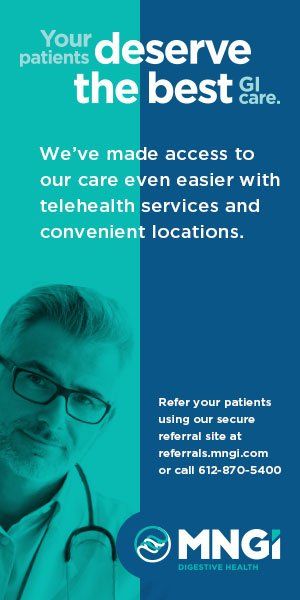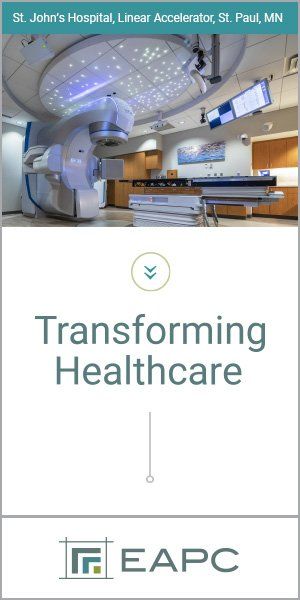Capsules
BC/BS MN Files Lawsuit Against COVID Testing Lab
Blue Cross and Blue Shield of Minnesota is taking legal action against COVID-19 testing laboratory GS Labs, LLC (GS Labs) to recover more than $10 million in overpayments made since the start of the pandemic. The complaint, which was filed recently in the U.S. District Court of Minnesota, alleges that GS Labs committed fraud against Blue Cross by submitting tens of thousands of claims using inflated cash prices over the past year. According to the Coronavirus Aid, Relief, and Economic Security (CARES) Act, in the absence of a contractual payment agreement, each COVID-19 testing provider is required to post specific cash prices on their public website, which insurers are then required to pay. Blue Cross alleges that GS Labs consistently and intentionally posted inflated cash prices on their public website in order to charge significantly larger amounts to Blue Cross than what it was willing to accept from individual cash-paying customers. Blue Cross billing data shows that GS Labs consistently charged more than five times the median market rate for its most commonly administered COVID-19 diagnostic test. Additionally, GS Labs embarked on a pattern and practice of administering additional tests for the sole purpose of increasing the total amount charged to Blue Cross. “It is our claim that GS Labs intentionally disregarded and misinterpreted federal guidelines for the sole purpose of maximizing profits during a public health emergency,” said Scott Lynch, senior vice president of pharmacy and chief legal officer at Blue Cross and Blue Shield of Minnesota. “After months of attempts at good-faith negotiations, we were unable to reach an agreement with GS Labs that would put in place appropriate COVID-19 testing practices at a fair price. It’s egregious price-gouging like this that ultimately drives up the cost of health care for everyone.”
New Law Allows Medical Cannabis Flower Sales in Minnesota
Goodness Growth Holdings, Inc. a physician-led, science-focused cannabis company and IP developer, announced last week that its Minnesota operating subsidiary, Vireo Health of Minnesota LLC, has launched a full line of cannabis flower in Minnesota’s medical cannabis program. The launch of cannabis flower is in accordance with Minnesota’s new regulations allowing certified medical cannabis patients in the state to purchase cannabis in its natural form, as dried whole flower. Governor Tim Walz signed the legislation to allow cannabis flower sales last year. The new law will greatly improve Minnesotans’ access to natural, affordable cannabis flower that is state-tested and safer than cannabis flower purchased from the illicit market. “We applaud Gov. Walz, the Minnesota State Legislature, and the Office of Medical Cannabis for its decision to allow flower sales to certified cannabis patients in Minnesota” said Chairman and Chief Executive Officer, Dr. Kyle Kingsley. “Allowing the sale of cannabis flower will greatly benefit existing patients, bring new patients into the program, and ensure the continued viability of Minnesota’s medical cannabis program. Flower sales will reduce the cost of medication for many patients, while also significantly increasing product optionality and diversity.” At launch, there are a wide variety of strains and product formats at all eight of Green Goods® dispensaries in Minnesota. Select strains will also be available for purchase at all other registered medical cannabis dispensaries in the state to help ensure that all Minnesotans have access to a wide variety of cannabis flower strains. Green Goods will continue to make new strains available for patients throughout the year. Minnesota’s medical cannabis patients have already shown a positive response to these new regulations. To purchase cannabis flower, patients are required to set up a consult with a certified pharmacist at a registered medical dispensary. Over 2,000 patients scheduled consults on the very first day consults were made available.
Medicare Telemedicine Coverage Extended
Recently, as part of the Consolidated Appropriations Act of 2022 (the “Omnibus Bill”), President Biden extended coverage of Medicare telemedicine services. This will include professional consultations, office visits and office psychiatry services conducted via telemedicine for 151 days after the end of the designated public health emergency (“PHE”). It is unclear whether the latest PHE declaration will be renewed or when it will be terminated. Prior to the PHE, in order to qualify for Medicare coverage of telehealth services, a patient had to be in a physician’s office, hospital, or other healthcare facility located in a qualified geographical health professional shortage area (HPSA), a county that was not included in a Metropolitan Statistical Area as of December 31st of the preceding year, or an entity participating in a federal telemedicine demonstration project. Furthermore, telehealth services had to be provided through CMS authorized technology. Changes made in March 2020 as part of the government’s response to the COVID-19 pandemic waived these location and technology requirements for the duration of the PHE. These waivers of location and technology requirements are now extended further under the Omnibus Bill. Additionally, the Omnibus Bill expands the types of practitioners eligible to provide telehealth services to patients. Prior to the PHE, Medicare covered telehealth services only if offered by physicians, physician assistants, nurse practitioners, clinical nurse specialists, nurse-midwives, clinical psychologists, clinical social workers, registered dieticians or certified registered nurse anesthetists. Under the Omnibus Bill, the list of qualifying practitioners has been expanded to also now include occupational therapists, physical therapists, speech-language pathologists and audiologists. Other changes include delaying in-person requirements for the provision of mental health services and extending coverage of telehealth services rendered by federally qualified health centers to provide telehealth services for the same 151-day post-PHE period.
Mayo Clinic Launches Limb Loss and Preservation Registry
Over 2 million Americans have lost a limb and that number grows by nearly 185,000 per year. Over half are the result of vascular disease with trauma, especially combat, and other medical conditions accounting for the rest. These individuals face unique and lifelong health care challenges. To address improving outcomes from these issues, the Mayo Clinic has recently received authorization from the Federal Risk and Authorization Management Program to begin operating the Limb Loss and Preservation Registry, a national collaborative warehouse for data on people who have lost limbs and may or may not have access to prosthetics. The registry will be the first of its kind in the U.S. The goal of the Registry is to generate knowledge about which advances make improvements in the care of people with limb loss and limb difference. Mayo is in sole charge of registry development and operations, reporting to the National Institutes of Health and the Department of Defense. The project will alleviate significant data gaps about limb loss
in the U.S. “Until now, there has been little evidence on effective clinical practices and technologies in this field,” says Kenton Kaufman, Ph.D., a Mayo Clinic researcher and head of the project. “This data repository is being hailed as the first national registry of its kind, geographically and demographically providing data that will improve prevention, treatment and rehabilitation efforts for this population. The Limb Loss and Preservation Registry is vitally necessary for the future of patient care, technology advances, and a range of other sustainable efforts in the prosthetic field”, says Dr. Kaufman. The data gap is considerable. In some cases, available statistics are over two decades old, and longitudinal data has never been collected. The registry will help manufacturers with data and feedback on how to improve the next generation of prosthetic devices. It will show insurers possible alternatives to amputation and how devices can improve patient lives. Data will help hospitals and therapists understand long-term use of prosthetics and reasons why problems may occur after patients leave rehabilitation centers. Overall, the registry will help clinicians make the best-informed considerations about prosthetics and treatments. To learn more about the registry, visit its website.
UCare Names New President and CEO
UCare Board Chair, James Pacala, M.D., recently announced that the Board’s CEO Search Committee selected Hilary Marden-Resnik as the organization’s next President and CEO. Marden-Resnik’s appointment follows a five-month period as interim President and CEO after Mark Traynor left UCare to pursue a career in teaching. During her time as interim leader, Marden- Resnik led the organization through record-breaking growth, achieving enrollment of more than 630,000 members. Marden-Resnik and the management team also provided strategic direction for UCare’s ongoing pandemic response, technology transformation, Medicaid RFP submissions and plans to expand to Iowa. Prior to her interim role, Marden-Resnik served as UCare’s SVP and Chief Administrative Officer since 2010, providing strategic oversight and executive leadership for claims and configuration, customer service, human resources, information technology and the project management office. She also co-led the strategic planning, member experience, and equity and inclusion functions. “Hilary embodies the type of leader UCare needs at this exciting juncture,” said Dr. Pacala, UCare Board Chair. “She understands how UCare needs to grow and evolve to meet our strategic priorities and support our employees, members, providers and community and regulatory partners.” “I am excited to lead UCare into a future of opportunity, growth, and increased access to care for current and new members,” added Marden-Resnik. “The Board’s confidence in me to lead UCare inspires me to do my best on behalf of our members and the communities in which they live and alongside the hardest working, people powered health care team in town!” Marden-Resnik joined UCare after a decades-long career working for Minnesota health care providers. She was Vice President of Human Resources at Hennepin County Medical Center (HCMC) – now Hennepin Healthcare – in Minneapolis. Marden-Resnik also held positions as Director of Human Resources for HealthEast, Human Resources Manager for Fairview Health Services, and employment and health law attorney for the Gray Plant Mooty law firm.
North Memorial Buys Fairview Out of Maple Grove
North Memorial Health recently announced its full ownership agreement of Maple Grove Hospital following the expected purchase of the final 25% stake from Fairview Health Services. The transaction will close on or before May 2, 2022. The new ownership structure supports North Memorial Health’s vision to create a comprehensive modern medical campus to meet the growing needs of Maple Grove and the northwest metro communities. “We’ve had a positive, successful partnership with Fairview Health Services through the years,” said J. Kevin Croston, MD, Chief Executive Officer, North Memorial Health. “This was a joint decision that is right for both organizations and we look forward to continued collaboration in other areas.” “Today’s announcement gives both organizations the ability to target investments in places that help us best serve patients,” said Hayes Batson, Chief Financial Officer, Fairview Health Services. “This transaction does not change our steadfast dedication to serving and caring for the residents in the northwest metro area.”North Memorial Health’s future plans for Maple Grove Hospital focus on expanding customer care capacity for the rapidly growing community, especially in the areas of emergency, imaging and in-patient services. Since opening 12 years ago, Maple Grove Hospital has become the largest birthing center in the state and continues to receive the Press Ganey Guardian of Excellence Award for overall inpatient experience. “This is an exciting step forward toward expanding the Maple Grove campus to empower customers to achieve their best health, while also keeping families close to home,” said Andy Cochrane, Chief Hospital Officer, North Memorial Health. “We are committed to providing the same high level of care and quality our customers expect throughout the transition and into the future.”
Medica Offers Home-based Kidney Testing
Medica has recently announced a new partnership with Healthy.io, whereby at-risk plan members can test their kidney function using their smart phones at home. Based in Tel Aviv, Healthy.io is a global leader in smart phone medical applications. Members with diabetes and/or hypertension will receive free albumin-to-creatinine ratio urine tests. Members take the test in the comfort of their home and receive results immediately, which they can share with their health care provider to determine if care is needed to prevent chronic kidney disease. CKD affects 37 million Americans, and 80% of individuals at risk for this disease fail to get tested for this life altering chronic condition. Healthy.io’s smart phone-based ACR home testing solution has the potential to simplify the health care experience by expanding access to care, reducing costs and improving patient health. “We know that 8 in 10 Americans who are at risk for chronic kidney disease don’t take their annual urine test, leading to delays in detection,” said Paula LeClair, US GM of Healthy.io. “Medica is committed to finding health care solutions that make our members’ lives easier, healthier and happier,’’ said David Webster, M.D., Chief Clinical and Provider Strategy Officer at Medica. “Through our relationship with Healthy.io, we can provide at-risk members a simple way to get tested and assess their kidney function with immediate results.” A recent study in the United Kingdom showed that this at-home screening solution raised test adherence from 0 percent to 50% among patients who had not done a urine test for kidney disease in the previous year The test is pending FDA 510(k) clearance and is currently for investigational use only.
MORE STORIES IN THIS ISSUE












